
KUALA LUMPUR, July 20 — The old adage of "making hay while the sun shines” seems to have taken a more literal meaning in these days of climate change.
It’s not "rain today, sun tomorrow” so much as a thunderstorm in the morning followed by the blazing sun in the afternoon. Given the confusing (or do we mean "confused”?) weather, it can be challenging to decide what to cook.
One approach is to be inspired by one extreme and be prepared for the other. If it’s sunny, well, let the sun be our Muse. If it’s pouring, let us have something warming to ward off the chill.
It is in this spirit that I have decided to cook fan shu tongsui (sweet potato soup) this weekend. Choosing the yellow variety of sweet potatoes brings a little sun into my kitchen. Pair this with old ginger for some heat, in case it rains.
A little sugar to bind everything together in a sweet, harmonious whole. What you have is a bowl (or several bowls, really) of sweet potato soup with a luscious golden sheen ideal for any weather.
Golden Sweet Potato Soup
Sweet potatoes, ginger and sugar. Given there are only three main ingredients in this recipe, aside from water, using the best or most appropriate version can elevate the final dessert soup.
Use your favourite type of sweet potato - yellow, orange or purple. I prefer the yellow sweet potato, if only I enjoy the harmony of its golden hue matching that of the ginger. But there is a secret to making it even better.
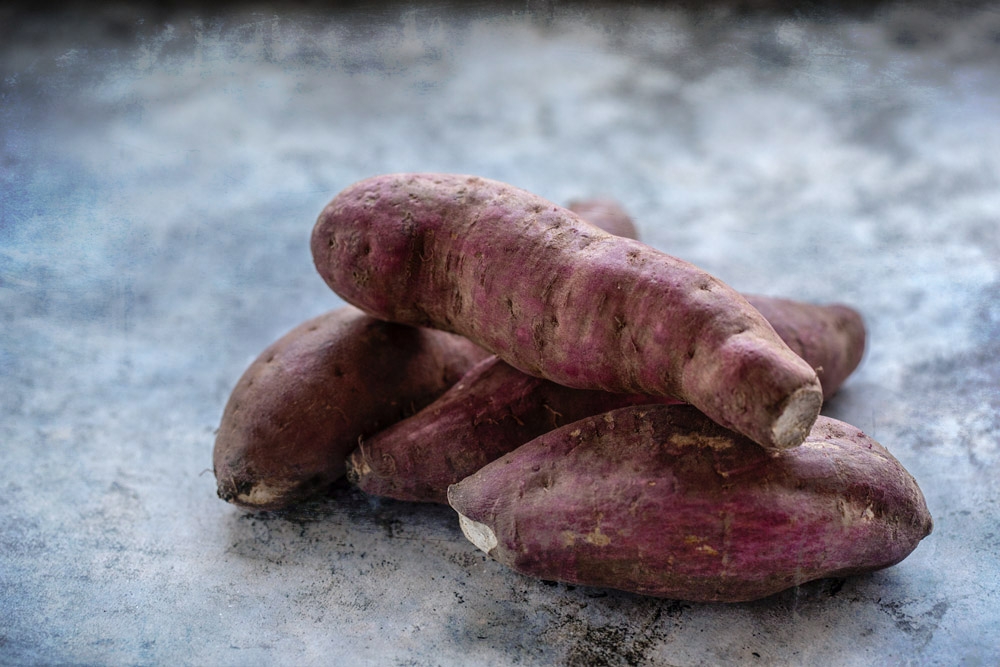
This is where a fourth bonus ingredient comes in - using peanut oil to shallow fry the chunks of sweet potato adds a subtle fragrance and sublime sheen to the root vegetables.
Don’t worry about the final soup being greasy or oily; very little oil is used and it’s mostly absorbed by the sweet potato. The colour of the soup will be more appetising, though, instead of the usual watery appearance.
A second secret to a better bowl of sweet potato soup isn’t another ingredient but the method of slicing the sweet potatoes.
Old Cantonese chefs believe that you should "kiu” or slice only midway before breaking the sweet potato off into chunks. This supposedly avoids breaking the structure of the starches inside.
The result is chunks with a better bite after cooking. Hipsters might call this a more velvety or buttery mouthfeel.
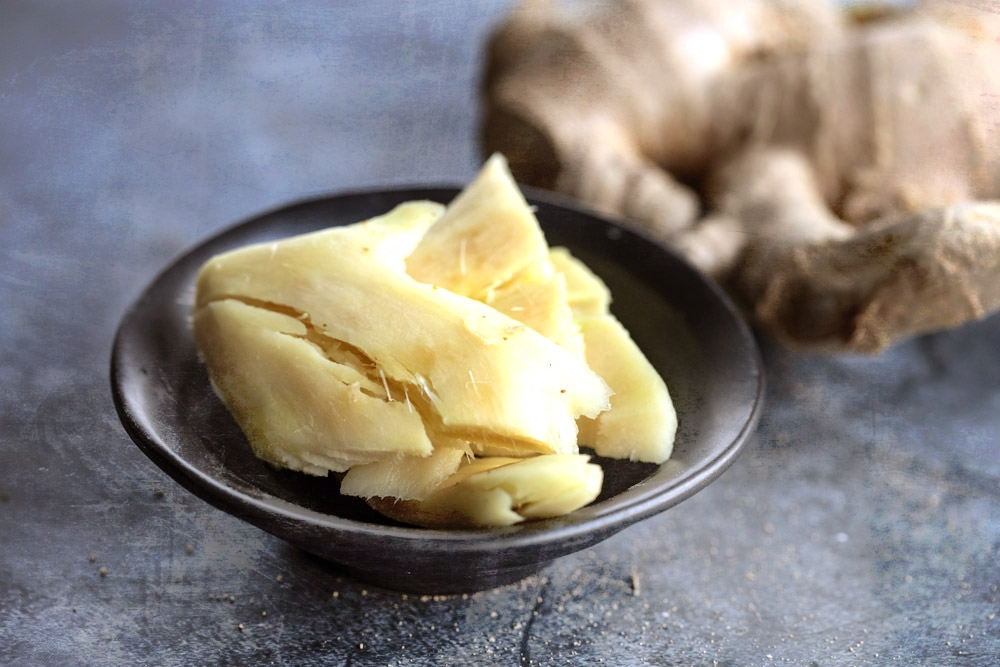
There is a saying in Chinese about how old ginger is always spicier. While this might be a pointed observation on how younger generations could benefit from the wisdom of their elders, the same is often true in Chinese recipes too.
We do want the heat from old ginger here; this is a warming bowl of sweet soup. I generally use a 3-inch piece of old ginger but you can use less or more depending on personal preference.
Just remember to smack the ginger with the back of a large knife or cleaver first, to release its spicy and aromatic juices.
To sweeten the dessert soup (this is a tongsui after all, or "sweet water” in Cantonese), we don’t simply grab the first available sugar in our pantry. Here, a Chinese brown sugar called pien tong (片糖) or "slab sugar” is used.
Sold in the form of slabs or rectangular bricks, pien tong is less refined compared to mass produced white sugar. Texture-wise, the block of brown sugar crumbles and dissolves very easily - perfect when making tongsui!
The resultant bowl has more depth of flavour than if one were to use normal sugar, without being cloyingly sweet. Along with shallow frying the chunks of sweet potato in peanut oil, using pien tong also adds to the delectable patina.
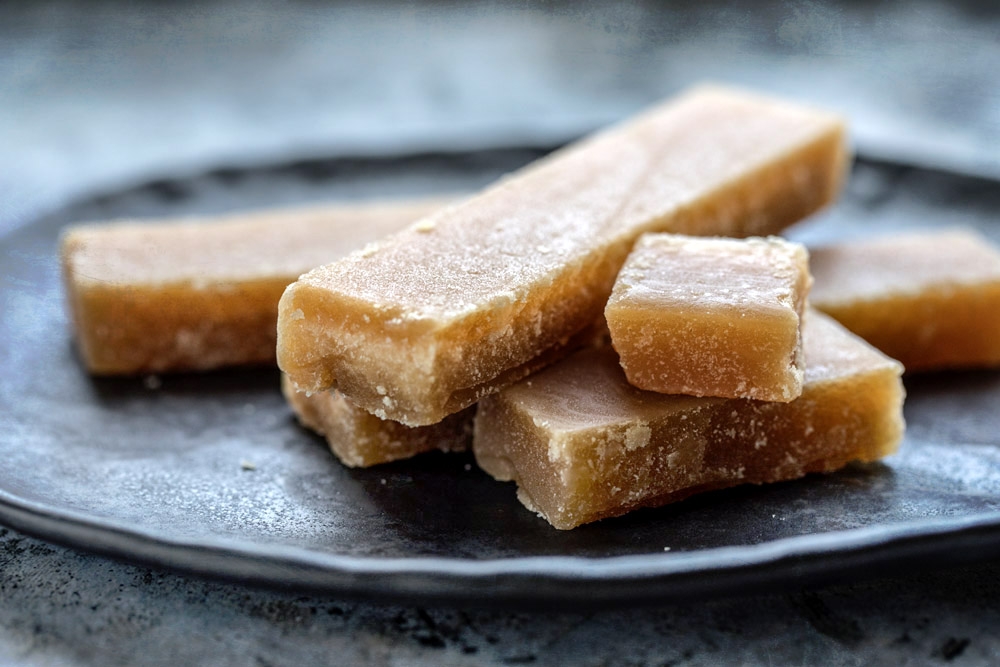
Ingredients
4 medium sized yellow sweet potatoes
Juice of ¼ lemon
3-inch piece of old ginger
1 tablespoon peanut oil
1.5 litres water
1 piece pien tong (Chinese slab sugar)
A pinch of salt
Method
Using running water, briskly scrub the sweet potatoes clean of any dirt. Prepare a mixing bowl of water infused with a little lemon juice.
Peel and slice the sweet potatoes into coarse chunks. Drop each chunk into the bowl of lemon water as your peel and slice, to prevent oxidisation. Soak the peeled sweet potatoes for a few minutes to remove any excess starch.
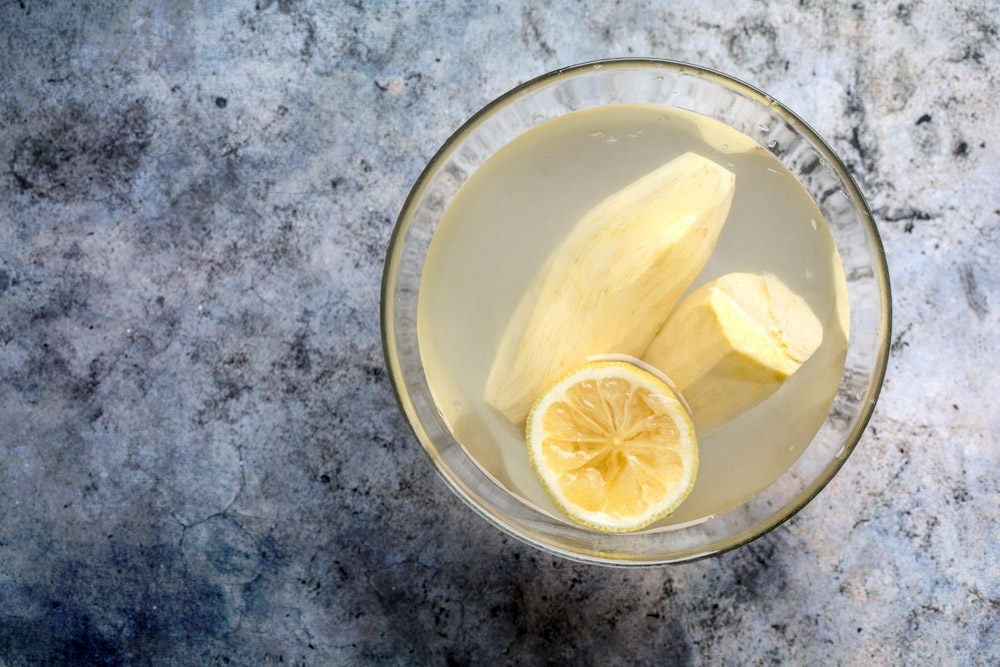
Cut the piece of old ginger into thick slices. Smack each slice with the back of a large knife or cleaver, to release its juices.
In a large pot, heat up some peanut oil. Add the sliced ginger and sauté until aromatic.
Next add the sweet potato chunks and stir fry for a few minutes. This will coat the sweet potatoes with the aromatic ginger-peanut oil as well as help some of the liquid inside the sweet potatoes evaporate.
Add the water to the pot and bring to a boil. Once it reaches a boil, reduce to medium heat and simmer for 15 minutes.
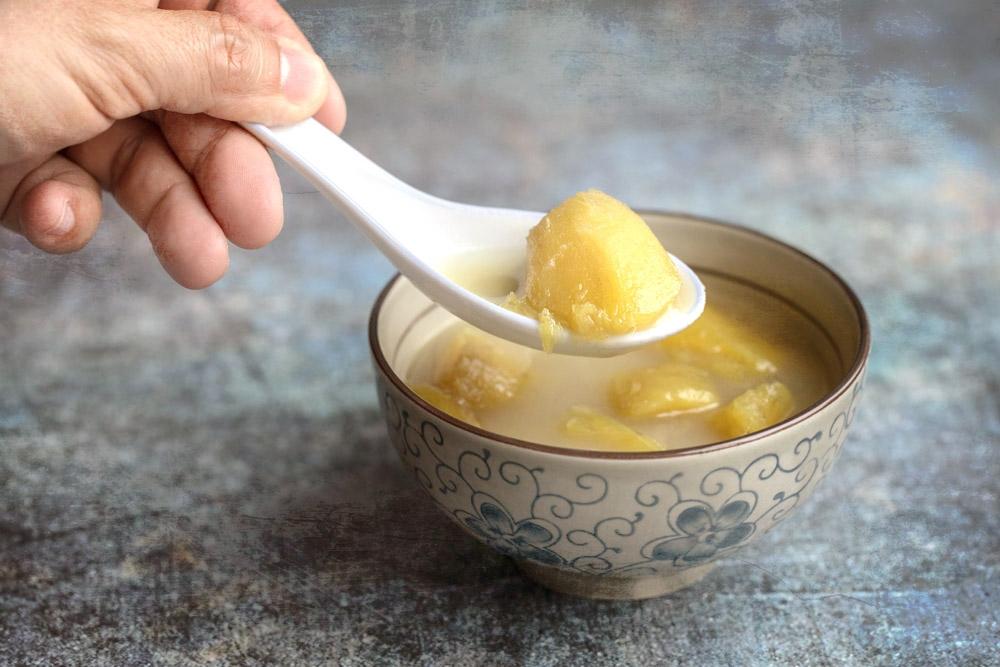
Add the pien tong and stir briskly to dissolve. Allow to simmer for another 20-25 minutes. Finish by sprinkling a pinch of salt. Stir to dissolve, then taste and add more pien tong if necessary.
Serve hot.






















